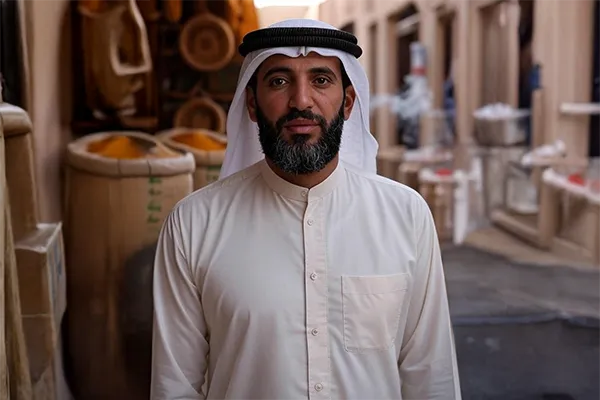By Joe Battaglia
Hidden In The Shadows: Who Is Omar Al-Kaabi?
August 05, 2025
The Souq Waqif breathes secrets like a restless beast, its alleys twisting through Doha’s core, heavy with the scent of scorched qahwa, cardamom’s sharp bite, and the metallic tang of unspoken deals. Lamplight sputters in the humid night, casting shadows that writhe across cobblestones slick with spilled tea and the briny reek of fish oil.

